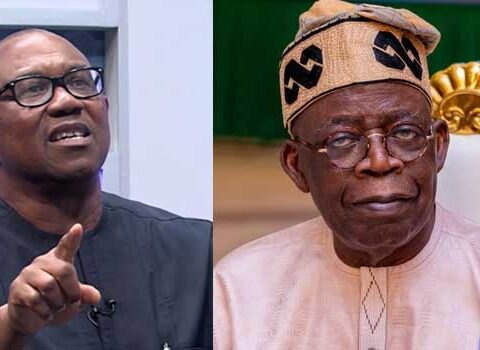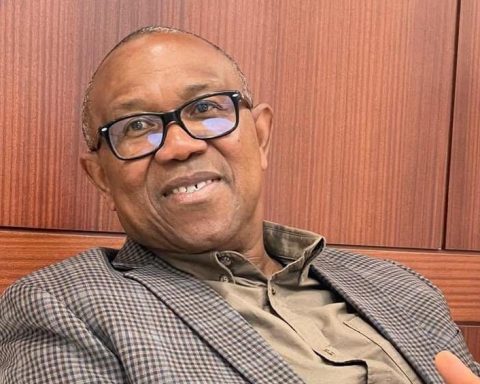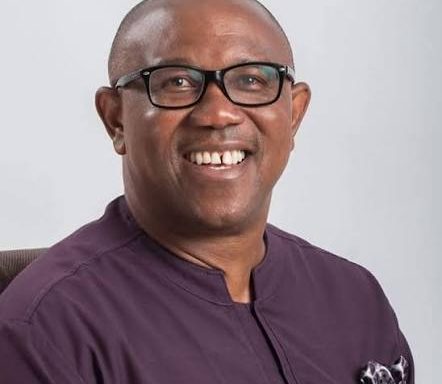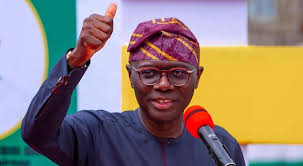As Peter Obi marks his 64th birthday today, Saturday, 19 July 2025, scenes from across the country reveal more than just a personal milestone. They echo a wave of popular longing for transformative leadership. In cities and towns, spontaneous gatherings erupted in music, dance, and parades, with citizens celebrating Obi’s legacy, especially his achievements as governor of Anambra State. These unprompted displays of solidarity and admiration were not orchestrated by political machinery, but stirred by genuine affection and a desperate call to play a much higher role in political office.
This surge of popular sentiment points to a man whose philosophy and lifestyle continue to spark vibrant conversations about leadership in Nigeria. Obi’s strong commitment to accountability, fiscal discipline, and principled public service has challenged prevailing political norms and inspired a movement eager for change.
Accordingly, Obi’s 64th birthday offers an opportunity to highlight the key antecedents, his background, values, and governance record that underscore his fitness for the nation’s highest office.
Background, Education, Business and Political Journey
The former governor was born on 19 July 1961, in Onitsha, Anambra State. He attended Christ the King College, Onitsha. His formal higher education began at the University of Nigeria, Nsukka (UNN), where he earned his degree in 1984.
READ ALSO: Obi Donates ₦15m To UNN Dentistry Students To Boost Re-Accreditation Effort
Before entering politics, he built a successful private-sector career, notably serving as the youngest chairman of Fidelity Bank Plc in the early 2000s. He also led Next International and sat on the boards of several financial and tech firms, including Guardian Express Bank, Chams Nigeria, and Paymaster. He undertook executive studies at institutions like Lagos Business School, Oxford, and Harvard, experiences that shaped his disciplined, data-oriented model of governance.
During Mr. Obi’s tenure as governor of Anambra State from 2006 to 2014, he earned a reputation for prudent, anti-waste governance that stood in sharp contrast to the norm in Nigerian politics. Reports showed Obi introduced systems that curtailed excessive spending and corruption, ensuring the state’s resources were directed towards genuine development.
While delivering a convocation lecture at Veritas University, Abuja in February 2020, Mr. Obi recounted: “There is no place in the world that I have seen where one man moves around with 22 vehicles. It is madness. I used it as a governor… until I asked to find out one day how many of the cars people were occupying, and about 13 of the cars were empty.” This quote illustrates his commitment to cutting wasteful government spending and embracing modesty in office.
His administration left a lasting impact. Under his leadership, Anambra soared from 26th to 1st place in nationwide NECO and WAEC rankings by 2012–2013. The education sector also saw hospital accreditations, new nursing schools, and over 800 km of roads constructed or rehabilitated, efforts that enhanced both learning and economic life.
Mr. Obi’s fiscal discipline was equally remarkable. By the end of his term in 2014, he reportedly left over ₦75 billion in savings (including ₦27 billion in local investments, US $156 million in foreign reserves, and ₦28 billion in bank balances), despite inheriting a state burdened by unpaid salaries and inherited debts.
READ ALSO: Obi: ‘I Won’t Buy ₦150bn Jet While 80% of Health Centres Are Broken’
According to the Debt Management Office, Anambra still carried about US $30.3 million in external debt and ₦3.03 billion in domestic debt as at December 2013. He also reformed procurement practices by instituting transparent, competitive bidding, reducing graft, improving efficiency, and reinforcing public trust.
National political engagement
Mr. Obi’s national political engagement garnered increasing momentum starting in 2019, when he served as vice-presidential candidate for the People’s Democratic Party (PDP). Although that bid was unsuccessful, it marked his emergence on Nigeria’s broader political stage beyond Anambra State. By 2022, he declared his intention to run for president again, this time under the Labour Party (LP) after leaving the PDP amid concerns of internal party fraud and lack of transparency.
His 2023 presidential campaign under the LP evolved into a mass movement energised by millions of young Nigerians known as the “Obidients.” This movement reflected deep dissatisfaction with the country’s traditional two-party system and rallied around Mr. Obi’s core message of cutting waste, building human capital, and pursuing systemic institutional reforms.
Other leaders who share similar political values with him, including former President Olusegun Obasanjo, notably endorsed Mr. Obi during this period, affirming in a public letter to young Nigerians that “when one compares their character, antecedents, their understanding, knowledge, discipline and vitality… Peter Obi, as a mentee, has an edge.”
Obi’s growing national appeal culminated in his remarkable third-place position in the 2023 presidential election, where he secured approximately 25 percent of the popular vote, a significant feat for a candidate running under a relatively small party for the first time. This indeed is a testament that people have seen him as capable of leading Nigerians.
Personal values, flaws, transformed to a public image
Mr. Obi’s personal values of modesty, simplicity, and fiscal discipline have become central to his public image and political appeal. This simplicity was recently highlighted in a widely shared social media video showing him serving food at an event, an act that reinforced his grounded and connected leadership style.
While some have labelled him a “stingy man,” he embraces this characterisation as a deliberate critique of excessive government spending on officials, which he believes leaves ordinary Nigerians impoverished.
His consistent message, grounded in the belief that “we can fix Nigeria by doing the right things,” reflects his commitment to redirecting resources towards public welfare rather than personal enrichment.
Yet no leader is without flaws, and Mr. Obi’s political journey vividly illustrates this timeless truth that no one is a salt who can perfectly sweeten the nation. Even salt, when in excess, turns bitter.
While the former governor of Anambra State has energised millions with his message and vision, critics have highlighted aspects of populism in his campaigns and pointed to structural challenges during his 2023 presidential bid.
Mr. Obi himself seems to be pleasing everyone. In fact, his attempts to reconcile differing expectations may reflect a desire to build unity in a deeply divided country.But, as former President Obasanjo pointed out, no politician is flawless. In spite of this, one thing is certain: a leader ready to accept criticism is the right leader. What stands out, however, is Mr. Obi’s response to criticism. Rather than react defensively or with rhetoric, he meets challenges with calmness, reliance on facts, and unwavering consistency.
His focus on data-driven governance and transparent communication reinforces not only modern leadership, but his commitment to “doing the right things” for Nigerians. This steadiness in the face of scrutiny enhances his credibility and endears him to a growing base that values integrity over empty promises.
Mr. Obi is widely viewed as a reformist leader who transcends ethnic and patronage politics, promoting instead a merit-based system that rewards competence and accountability. He might not have become a president yet, but his influence in criticising and pointing out the wrong leadership of the current administration is part of shaping modern Nigeria.
In a country widely known for the deep-rooted challenges of corruption, nepotism, tribalism, religiosity, and extravagant political spending, here is a man famously known for wearing the same clothes and wristwatch over the years, and choosing instead to invest his resources on Nigeria’s students and educational institutions.
READ ALSO: Obi Condemns Killing Of 10 In Anambra, Demands Justice
He has donated over millions of naira to support education. He visited institutions such as Queen’s School in Enugu, Borromeo College of Nursing in Onitsha, Almajiri schools in Kaduna, and educational centres in Kogi State etc. At St. John Vianney Science College in Ukwulu, Anambra State, he personally donated ₦10 million to support infrastructural development following their victory in the UK-Nigeria Debate Championship.
His example underscores a leadership approach that values frugality not as stinginess but as a principled stand against waste and corruption, redirecting resources towards building human capital the foundation for Nigeria’s future prosperity. In a nation deeply yearning for integrity and tangible progress, Mr. Obi’s actions and lifestyle continue to resonate powerfully with those seeking genuine change.
As he celebrates his 64th birthday today, one thing is certain: teachers, students, and ordinary Nigerians alike continue to celebrate with him, reflecting the deep connection he has forged with the people through his commitment to education and responsible leadership. His birthday symbolises more than personal achievement; it represents hope for a Nigeria anchored in accountability, vision, and integrity.
Amid ongoing national debates about the country’s future, Obi’s profile remains a vital reference point for leadership that prioritises transparency, fiscal discipline, and human capital development. On this special day, I join students and citizens across Nigeria to say, “Happy Birthday, Mr Peter Gregory Obi.”
Dr Mbamalu, a Jefferson Journalism Fellow, member of the Nigerian Guild of Editors, and Media Consultant, is the publisher of Prime Business Africa
Dr. Marcel Mbamalu is a distinguished communication scholar, journalist, and entrepreneur with three decades of experience in the media industry. He holds a Ph.D. in Mass Communication from the University of Nigeria, Nsukka, and serves as the publisher of Prime Business Africa, a renowned multimedia news platform catering to Nigeria and Africa's socio-economic needs.
Dr. Mbamalu's journalism career spans over two decades, during which he honed his skills at The Guardian Newspaper, rising to the position of senior editor. Notably, between 2018 and 2023, he collaborated with the World Health Organization (WHO) in Northeast Nigeria, training senior journalists on conflict reporting and health journalism.
Dr. Mbamalu's expertise has earned him international recognition. He was the sole African representative at the 2023 Jefferson Fellowship program, participating in a study tour of the United States and Asia (Japan and Hong Kong) on inclusion, income gaps, and migration issues.
In 2020, he was part of a global media team that covered the United States presidential election.
Dr. Mbamalu has attended prestigious media trainings, including the Bloomberg Financial Journalism Training and the Reuters/AfDB Training on "Effective Coverage of Infrastructural Development in Africa."
As a columnist for The Punch Newspaper, with insightful articles published in other prominent Nigerian dailies, including ThisDay, Leadership, The Sun, and The Guardian, Dr. Mbamalu regularly provides in-depth analysis on socio-political and economic issues.













